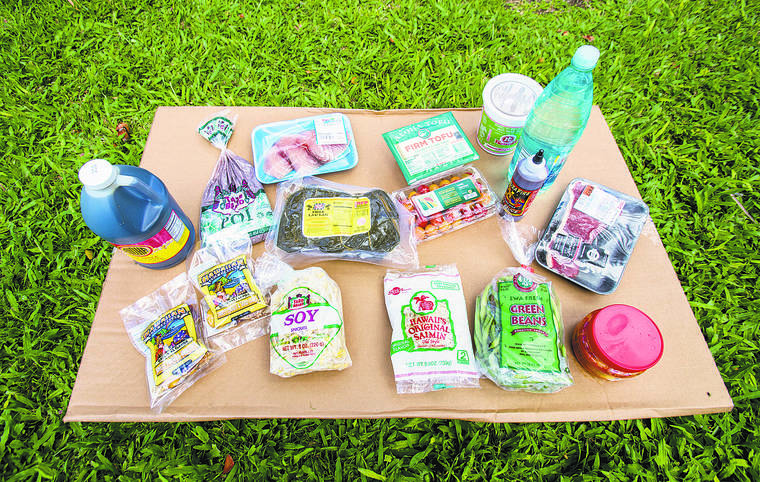HONOLULU — Oahu would have the strictest single-use plastics ban in the state under a bill that is likely to pass a final vote of the Honolulu City Council today.
The bill was approved by the Council Public Safety and Welfare Committee two weeks ago by a 3-2 vote, and a solid majority of the full Council appears ready to pass the measure. Mayor Kirk Caldwell, meanwhile, said he would likely sign the bill.
Food industry leaders — who oppose the measure but now appear resigned that the bill will pass- — have asked for additional time to get rid of their existing stock of plastic containers, and that’s one change to the bill that council members will consider before their final vote.
The version that was approved by the committee would prohibit food vendors from making available plastic forks, spoons, knives, straws or other utensils (defined as service ware) as well as plastic foam plates, cups and other containers (defined as food ware) starting Jan. 1, 2021. The ban would include other plastic food ware and apply to non-food-purveying businesses beginning Jan. 1, 2022.
Plastic bans went into effect in Maui and Hawaii counties during the last year, but they prohibit polystyrene foam containers only. The Honolulu bill would also apply to utensils and other service ware.
Violating the ordinance can cost food vendors up to $1,000 a day. Among the exempted items: packaging for raw or butchered meats, poultry, fish, eggs or other food that needs further preparation.
The bill prohibits restaurants and other food servers from using polystyrene foam plates, bowls, cups and other containers. Straws, cup lids, utensils and film wraps are not included, but the county “encourages the use of environmentally preferable alternatives.”
Councilman Tommy Waters, who chairs the Public Safety and Welfare Committee, this week offered up a new draft of the bill that would give food vendors an additional year, until January 2022, to stop dispensing foam or any other kind of plastic food ware. The prohibition on plastic service ware would still have a 2021 start date.
Jason Higa, president and CEO of Zippy’s Restaurants’ parent company, FCH Enterprises, said the complex issues involved with switching the hundreds of different container products in the local food industry to nonplastic alternatives will by itself require a lengthier implementation period.
Higa said he anticipates the need for “additional fixes that will have to take place.” He also pointed out that city Environmental Services Director Lori Kahi kina, whose agency would be tasked with overseeing and enforcing a ban, has acknowledged it might take some time to collect the expertise necessary to administer the ban. That would likely include a rule-making period which would include time for public comment.
ABC Stores President and CEO Paul Kosasa told the Honolulu Star-Advertiser editorial board last week that the health of the company’s consumers is paramount and that food containers made from plant-based materials are not quite ready.
At this point “plastic is the only substance that gives biological protection from bacterias and those kinds of things. … We want to make sure that our consumers are eating good and safe foods and they’re on the shelf for a period of time, ” Kosasa said. “The notion that we can just eliminate it and go with the (plant-based ) bioplastics is false because the technology for bioplastics hasn’t come to the point where it can provide the adequate protection. And they’re close ; I’m sure within the next five years they’ll come up with something.”
The plan to prohibit single-use plastic food containers and utensils has spurred heated and emotional arguments, with both bill proponents and opponents holding rallies on Honolulu Hale’s front lawn to bring attention to their perspectives.
Environmental groups pushing for the bill have been bolstered by the support of Caldwell’s Office of Climate Change, Sustainability and Resiliency as well as a collection of impassioned college and high school students who have urged council members to consider the long-term ramifications of plastics.

